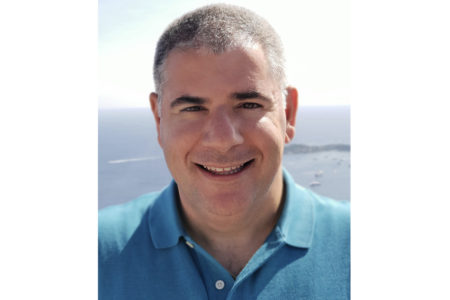. The world bids farewell to a year full of challenges and political, economic and health difficulties, which have had repercussions on various sectors, businesses and private life… – What is your reading of the reality, events and impacts of the year 2021?
COVID headlined again this year as the pandemic continues to have such a dramatic impact on us all. Here we are again in the midst of another wave, meaning the pandemic is far from over and I expect the crisis will continue to ricochet its way around the world in 2022.
The news in 2021 was also dominated by a series of events that had a direct impact on the insurance industry. Climate Change really took its toll this year on catastrophe losses, as we saw some unprecedented events occur due to changes in weather patterns, such as the flooding in Europe, extreme heat and bush fires across the world. With recovery plans in place to stabilise economies around the world, hypo inflation continues to be the biggest threat in the room, which will impact households and businesses next year. We also saw a surge in political unrest in certain regions of the world.
Taking these issues on board, the shift in the global geopolitical landscape means that 2022 is likely to be as challenging as 2021. Hopefully we have learnt some valuable lessons to enable us to face these challenges in 2022 with confidence and the insurance market has the appropriate coverage in place to provide support.
. Most countries of the world have begun the journey out of the cycle of the Covid-19 pandemic – What is your assessment of the effects of this pandemic on the insurance sector?
With regard to the pandemic and the insurance sector in particular, I believe that the financial effects have already been documented. Towards the end of 2020 there was a flurry of court cases to establish whether insurers were liable for business interruption claims caused by the world going into lockdown. Overnight insurers updated their wordings and added pandemic clauses. I would be very surprised if many insurers now cover the impact of the pandemic and for those that do, they will have already priced this factor into their premiums.
. Competition is intense and its manifestations vary between prices, products and services – How do you look at the competition factor from its various aspects?
As a boutique reinsurer, we ultimately do not engage in competitive behaviour. No doubt it is a challenge for brokers and local companies vying for market share, but it is a given that the London Reinsurance Market is among the destinations of choice for large businesses in the world in which we are concerned.
. Cyber insurance has imposed itself as one of the most important insurances in the era of globalization and technology – How do you deal with this type of insurance, especially since it requires great financial capabilities and distinct technical and technical expertise?
Cyber continues to be a very evolving class and many will agree that the market does not know enough about the exposure to the insurer’s balance sheet as yet. Like all insurers in the London Market, we are treading very carefully in this space, working closely with our capacity providers.
. A number of insurance companies are adopting a policy of acquisition of technology companies to enhance their capabilities in this area. What is your comment? Do you support or adopt such a strategy?
Technology is the cornerstone of every industry and we pride ourselves on having developed our own underwriting technology platform – Connect Marketplace. Having a technology solution in place to enable us to quote and bind business electronically put us in good stead when the market moved to remote working. If COVID has taught the insurance market anything, it’s the importance of technology to be able to survive and operate business as usual.
. In the face of the accelerating challenges in our world at various levels and discoveries… Reinsurers find themselves facing facts that impose new types of coverage. – How do you look at these facts and how do you handle them?
Evaluation of coverage is a natural and essential part of the insurance market. Most of the new product development occurs in the primary and D&F marketplace. As predominantly an XOL reinsurance underwriter, we tend to benefit from the work performed on the upfront policies that has been done by the local companies before the business comes to us.
. How do you evaluate your company's business in the Middle East and North Africa regions in particular and in various countries of the world in general? – Are there any new changes?
We view the emergence of renewable energy, bio-tech and other technological developments with interest. We are primarily engaged in the energy and heavy industry segments and our philosophy is consistent not only in the Middle East and Africa, but elsewhere, as we write a worldwide book. Currently the Middle East constitutes about 20% of that book.
